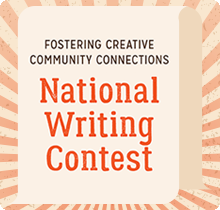My family and I were among the throngs of people returning home from the Fourth of July celebration held in Fairmount Park in Philadelphia, Pennsylvania. We’d spent the day picnicking with relatives, friends and crowds of people. That morning we’d walked the four blocks from Mt. Vernon, the narrow street where my family’s row house stood. The Fourth of July was the fulfillment of the summer weeks and days I had spent anticipating it. The day began early with the delicious aroma of fried chicken and the sound of my mother downstairs in the kitchen, preparing an enormous picnic lunch our family would carry to the park. At that very moment, all of my expectations for Independence Day were released.
A blazing, hot day framed thousands of celebrants and Fairmount Park. The exciting day had seen me and others through: there’d been lots of fun and games and great-tasting foods, and much romping about on the luscious green grounds for which Fairmount Park is exemplary. Even the Fourth of July program that had been echoing throughout the day from a platform across the ocean of enthusiastic picnickers had been entertaining and interesting. On Independence Day the lush, pantheon grounds of Fairmount Park served the public at large in a patriotic sense and in a social context as well. (During all of the levity and celebration, a hallowed, patriotic spirit presided over the surroundings: a permanence and intransigence parlayed and transposed the serene park grounds that a hollow strain inhabited. There were emanations from the American Revolution and from other wars fought in the preservation of our country’s freedoms. George Washington’s Troops at Valley Forge-Revolutionary War; the War of l812; Gettysburg; Manassas; Appomattox; the Civil War; the Mexican/American War; the Great War; World War I; Normandy; D-Day-World War II).
The effect of World War II on our community was extensive. My family knew personally men who while fighting in World War II were injured or lost their lives. One very sad case involved a young man, who returned from the war with Japan, hopelessly shell-shocked. Another situation concerned a very notable action on the part of an employer at the factory where my mother worked. It seems that he was one of the three soldiers to place the American flag on the hilltop at Normandy, a brave act indeed. Nevertheless, he contracted a physical condition fighting in the jungles that left him with an incurable odor. A very young mother we knew was left with a toddler to rear alone when her young husband was blown to pieces by German forces. And, of course there were others, some even relatives who courageously contributed to the war efforts of our nation.
I was among my family and others in the park’s natural setting. The lush, green floor was fertile ground, reconnecting the past and me. (As I listened, images and transformations of my ancestors hovered over the intimate conversations of my relatives, recreating the source of my background. The experience was comforting, encouraging, and inspiring, even elevating). A long day of excitement ended with the beauty and splendor of fireworks shattering the violet night sky.
Now, the plenteous, fulfilling experience was over and families and others were returning to where they dwelled in the Bottom. I was lost to longing and regret as I stood on the corner at the top of Mt Vernon Street. (A concentration of darkness and gloom saturated the lifeless rummage and plumbing fixture businesses and other businesses at that location. The darkened sky floated with stars and cloudy formations-some of it vestiges of exploded fireworks. A volume of sadness and disappointment infiltrated the darkness magnifying the solemn retraction that normally clung over the Bottom, with the concentration overflowing into Mt. Vernon Street.) With a deep sense of regret and reluctance, I climbed down into the canyon of Mt. Vernon Street. The spectacular, explosive day was over, my spirit and I would have to wait for next year’s ‘Fourth.’



